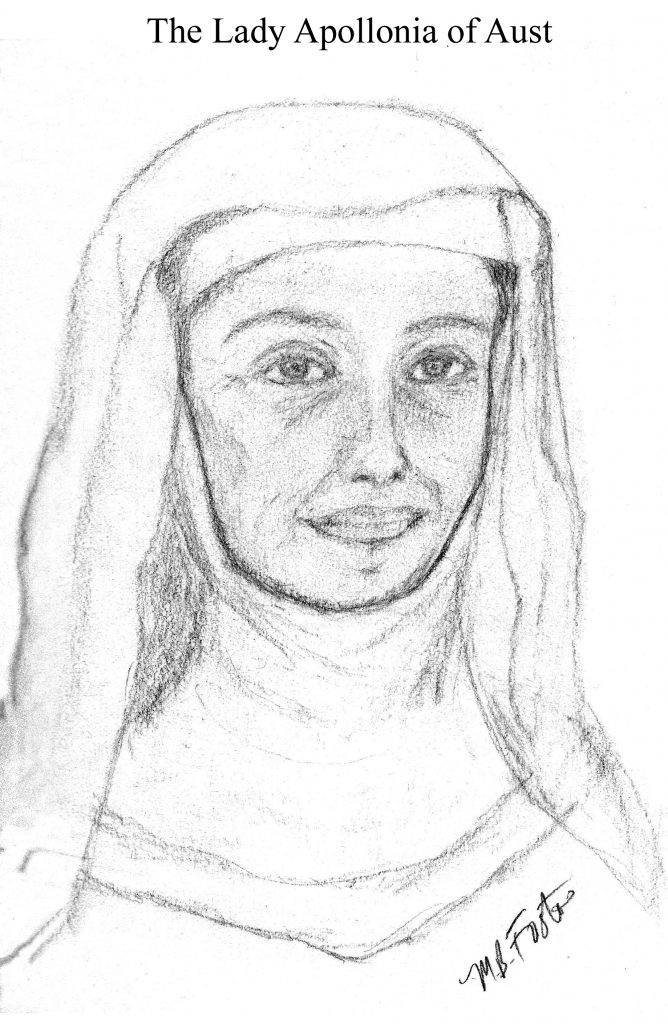 For over a year I have been discussing various medieval topics found in specific books in my West Country Medieval Mystery Series which features my heroine, the Lady Apollonia of Aust. My topics, starting this month, are not tied to any specific book. Women’s Rights in the Middle Ages is based on a short article I wrote for the monthly newsletter in my retirement community, and I would like to share it with you in this blog posting.
For over a year I have been discussing various medieval topics found in specific books in my West Country Medieval Mystery Series which features my heroine, the Lady Apollonia of Aust. My topics, starting this month, are not tied to any specific book. Women’s Rights in the Middle Ages is based on a short article I wrote for the monthly newsletter in my retirement community, and I would like to share it with you in this blog posting.
It is an interesting question, even in our modern day. What do we mean by a person’s “rights”? In our day, American woman have the authority to fulfill their responsibilities as citizens, a moral or legal entitlement to do something of their choosing. In the Middle Ages, all women were seen as inferior to men and their lives were controlled by men. Even in the case of the nobility, a young woman’s life, such as my heroine’s, was that of a pawn. Adulthood for a girl began very early. She was of marriageable age by twelve years old; many young noblewomen were married by age fourteen.
In addition, the medieval young woman had very little say in the choice of her husband. Women could inherit property and wealth, but these things would be controlled by the men in her life, her husband, her father, or male guardian.
When designing the heroine in my stories placed in the West Country of England in the late fourteenth century, I created Apollonia as the daughter of an Earl. Her marriage was arranged by her father when she was fourteen. She and her first husband had no children, and when he died in a hunting accident, she was left with significant wealth and lands. She was told by her surviving older brother that she must marry again, and the man who was asking for her hand was a franklin. He was of lower class than she but a wealthy merchant who was highly regarded in his community.
As they lived together, my heroine fell in love with her second husband, and they had five sons together who were grown men when that husband died of natural causes. Her third husband was a dear friend, significantly older than she, who died after only several years of their marriage. She was left a very wealthy and landed lady. A drawing by my daughter-in-law Shelly Foster of a mature Apollonia is shown below. As such, she knew she must find a way to defend herself and to do that, she had herself declared a “vowess”.
Her vow was perpetual chastity in a church ceremony before the bishop of her diocese. The lady was allowed to remain in the world, not enter a convent but be protected by the Church as an independent, wealthy woman and landowner. She did achieve “rights” as an independent woman, but only through the protection of the Church. Therefore, few women of the Middle Ages had “rights” unless unusual circumstances in their lives enabled them to live beyond the control of men.
Please be with us next time when we continue to discuss life and sites in England in the Middle Ages.
